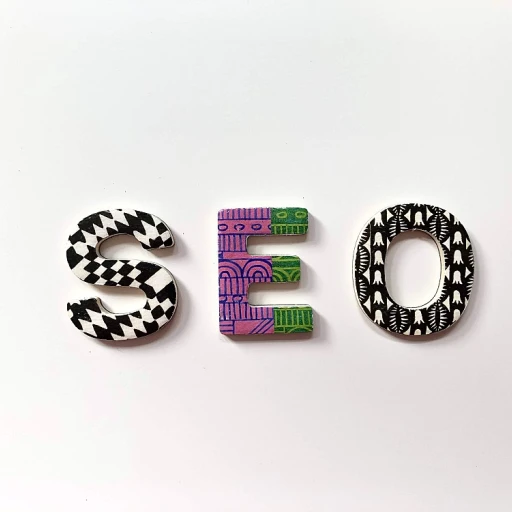
The AI Revolution in SEO: Beyond Keyword Density
The New Frontier: Artificial Intelligence in SEO
The advent of artificial intelligence (AI) has revolutionized multiple industries, and Search Engine Optimization (SEO) is no exception. AI's transformative power stretches beyond standard practices like keyword stuffing and meta-description optimization. Today, SEO experts are turning towards AI-driven methods to enhance their SEO strategies, ensuring they not only keep up with current trends but also stay ahead of the curve.
Unpacking the Impact of AI on Content Relevance and Quality
In the realm of SEO, content is king. But AI is changing the dynamics of how content is crafted and optimized. No longer is SEO merely about hitting a certain keyword density or churning out volumes of content. AI tools analyze vast arrays of data to understand what makes content truly relevant and engaging to users. They sift through user engagement metrics, search patterns, and content performance data to help SEO professionals create high-quality material that resonates with the audience and ranks well on search engines.
Sophisticated Algorithms: Moving Towards User-Intent Optimization
Understanding and matching user intent has become crucial in the AI era of SEO. Sophisticated algorithms employed by search engines examine not just the keywords but the context and intent behind searches. This enables them to deliver more accurate results, satisfying user queries more effectively. For content creators, this means digging deeper into predictive analytics to anticipate future queries and prepare content that addresses those needs—an approach that merges seamlessly with personalized content strategies, which we'll delve into further down the line.
From Keywords to Topics: Embracing Thematic SEO
AI’s advancements encourage a shift from isolated keywords to thematic SEO, where topics hold more value than individual keywords. This change is in response to evolving search engine algorithms that prioritize topic authority over keyword frequency. AI-powered tools aid in deciphering these algorithms, providing insights that lead to a more holistic and robust content strategy. Embracing this thematic approach paves the way for crafting inclusive content that meets a variety of related user queries, potentially boosting online presence and authority.
Machine Learning Predictions: A Crystal Ball for SEO Strategy
Machine Learning Predictions: A Crystal Ball for SEO Strategy
The advent of machine learning has propelled SEO into a new era, transforming it from guesswork into a precise science. Machine learning algorithms have begun to function as a crystal ball for SEO strategists, providing predictions that help tailor content to the evolving patterns of user behavior. The ability of artificial intelligence to analyze large volumes of data and predict future trends is reshaping how we approach SEO.
Unlocking SEO Potential with Data-Driven Insights
One of the most powerful applications of AI in SEO is its ability to dissect vast amounts of search data to uncover underlying trends. By analyzing the performance of content across different metrics, machine learning helps identify what content is likely to perform well in the future. This goes far beyond traditional keyword density, focusing instead on user intent and engagement indicators.
- Identification of emerging topics before they become widely search trends
- Anticipating changes in user search behaviors and interests
- Analysis of competitor strategies to identify gaps and opportunities in content
Optimizing for Tomorrow's SEO Today
Machine learning doesn't just offer insights; it provides foresight. SEO experts can now leverage machine learning models to forecast shifts in search engine algorithms and user preferences. This enables the optimization of content not just for current SERP rankings but also for future relevancy. Imagine being able to adjust your strategy in anticipation of algorithm updates—machine learning makes this possible.
With insights from predictive models, content creators can craft articles, blog posts, and web pages that cater not only to today’s audience but also to the potential interests and inquiries of future users. By proactively adapting to these forecasts, businesses can stay ahead of the curve, ensuring their content remains impactful and visible.
For a deeper dive into the transformative power of AI in SEO, consider signing up for a session on pioneering intelligent optimization for tomorrow's web. Here, further nuances of machine learning and its capacity to predict and adapt to changing SEO landscapes are unraveled.
Precise Targeting through Predictive Keywords and Phrases
Keywords have long been the linchpins of SEO, but the future lies in anticipating and targeting predictive keywords and key phrases. By analyzing searcher query patterns, AI tools can predict the rise of new keywords and help to seamlessly integrate them into content ahead of the competition. This proactive approach ensures continuous visibility as search landscapes change.
By leveraging the power of predictive analytics, SEO strategy becomes more dynamic and responsive. Marketers and SEO professionals can transition from reactive approaches to predictive strategies, allowing them to craft content that not only meets current search demand but sets the agenda for future search trends.
Incorporating machine learning predictions into your SEO strategy fundamentally changes the game. It’s about syncing with the ebbs and flows of digital consumer behavior and staying one step ahead. As search engine algorithms continually evolve, the integration of AI-driven predictions into SEO practices isn’t just advantageous—it's becoming indispensable.
For an illustration of how to craft SEO pathways that resonate with both current and future audiences using AI, take a look at crafting the ultimate SEO pathways.
Leveraging AI to Decode Search Engine Algorithms
Predictive Analytics: Tailoring Content for Future Queries
Mastering the Art of Predictive Content Creation
The infusion of artificial intelligence in SEO has given rise to sophisticated predictive analytics tools. These tools arm digital marketers with remarkable foresight, enabling them to craft content that not only serves current demands but also anticipates future queries. It's a strategic move; rather than reacting to search trends, marketers can proactively address emerging topics and user interests, securing a vanguard position in search engine results pages (SERPs).
Anticipating Consumer Intent with Data-Driven Insight
To truly optimize for the future, one must delve into the complexities of consumer behavior. Predictive analytics go beyond standard keyword research, harnessing vast amounts of data to discern patterns in search habits and content consumption. This analytical approach provides a window into the nuances of user intent, allowing for the creation of content that resonates on a deeper level with audiences, both present and prospective.
- Understanding seasonal trends can lead to timely and relevant content strategies.
- Analyzing search query progressions reveals how consumer interests evolve over time.
- A/B testing with predictive models can enhance the attractiveness of content to different user segments.
Data-Driven Storytelling: Engaging Audiences Tomorrow
Indeed, the key lies in data-driven storytelling. By weaving together a narrative informed by predictive analytics, marketers can create compelling content that captures the interests of users before they even realize it themselves. This strategic content development positions websites to not only match but also shape user search patterns, establishing a brand as a thought leader in their niche.
Statistics from numerical sources affirm the value of aligning content with emerging trends. Websites adopting this forward-thinking approach have seen increases in organic traffic, improved engagement metrics, and higher conversion rates. It's a clear indicator of the competitive edge gained when one synchronizes their SEO efforts with the predictive prowess of AI.
Navigating the Path to Predictive Personalization
Moreover, the age of AI facilitates a shift towards personalized user experiences. Predictive analytics can identify micro-trends and individual preferences, allowing for the curation of personalized content renditions. This level of customization not only enhances user experience but also significantly boosts the relevance of content in the eyes of search engines. It's a win-win situation; users feel understood and catered to, while search engines are provided with highly pertinent content that helps refine their algorithms.
Experts advise exercising caution and ethical considerations when personalizing content to ensure user privacy is respected. Best practices involve transparent data collection methods and responsible use of personal information in alignment with data protection regulations.
Ethical Considerations and Best Practices in AI-Enhanced SEO
The Human Aspect in the AI-SEO Integration
As we embrace the transformative power of AI in the realm of SEO, it is imperative to consider the ethical implications to ensure that we are not crossing boundaries of privacy and fairness. The application of artificial intelligence in SEO raises concerns such as data privacy, the potential for algorithmic bias, and the transparency of AI-driven decisions. Ethical SEO practices mean respecting user data, abiding by laws like GDPR, and being clear about the AI's role in content creation and ranking.
Maintaining Transparency in AI-Influenced Rankings
Transparency is paramount when utilizing AI in improving search engine rankings. Users and webmasters should be aware of how AI algorithms influence the ranking of pages and the content they are being served. This advocates for an environment where trust is maintained between the search engine, content creators, and users. Accurately disclosing the use of AI in personalizing content and search results contributes to responsible SEO strategies.
Fostering Fairness and Avoiding Bias
Search optimization must not only focus on enhancing visibility but also on promoting fairness. It is crucial for AI systems to be designed to avoid perpetuating stereotypes or marginalizing certain groups. Bias in machine learning can inadvertently arise from skewed datasets, and constant vigilance is required to detect and correct these biases. An ethical SEO strategy is inclusive and ensures that content relevance reaches diverse audiences without discriminatory biases.
Best Practices for Ethical AI in SEO
- Commit to data protection and user privacy by implementing stringent security measures and data handling practices.
- Ensure AI systems are transparent and understandable to those using them for SEO purposes.
- Regularly audit and update AI algorithms to detect and remove any form of bias, ensuring fair representation across search results.
- Engage in continuous learning and adaptation of AI tools to stay abreast of the evolving digital landscape and its ethical considerations.
Conclusion
In conclusion, while AI holds the potential for tremendous advancements in SEO, it is the responsibility of practitioners to use this technology ethically. Incorporating AI into SEO practices offers predictive insights and personalization at an unprecedented scale. However, stakeholders must consider the social and ethical impacts of these developments, ensuring that the SEO community continues to foster trust and deliver genuine value to users globally.













